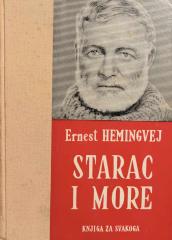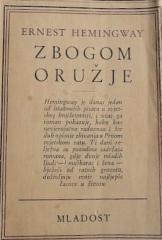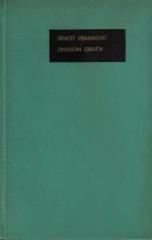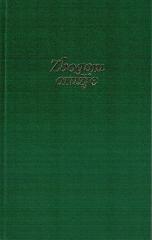Ernest Hemingway
Ernest Hemingway (21. Juli 1899 – 2. Juli 1961) war ein amerikanischer Autor, Journalist und Gewinner des Nobelpreises für Literatur im Jahr 1954. Er war bekannt für seinen einzigartigen, prägnanten Schreibstil, der die Literatur des 20. Jahrhunderts nachhaltig beeinflusste. Er wurde in Oak Park, Illinois, geboren und meldete sich als junger Mann freiwillig als Krankenwagenfahrer im Ersten Weltkrieg, eine Erfahrung, die viele seiner Themen prägte.
Seine ersten bedeutenden Werke waren die Sammlung U naše doba (1925) und der Roman Die Sonne wird wiedergeboren (1926), in denen er zur Stimme der „verlorenen Generation“ wurde. Seinen Ruhm festigte er mit den von Kriegserlebnissen inspirierten Romanen „In einem andern Land“ (1929) und „Wem die Stunde schlägt“ (1940), der den spanischen Bürgerkrieg behandelt.
Sein bekanntestes Werk ist die Novelle „Der alte Mann und das Meer“ (1952), eine bewegende Geschichte über einen Fischer und seinen Kampf mit einem großen Fisch, für die er den Pulitzer-Preis und den Nobelpreis erhielt. Hemingways Stil – einfach, konkret, ohne unnötige Verzierungen – wurde für viele Schriftsteller zum Vorbild.
Er war außerdem ein begeisterter Reisender, Jäger und Kriegskorrespondent und lebte auf der ganzen Welt: in Paris, Spanien, Kuba und Afrika. Leider waren seine letzten Jahre von Depressionen und Krankheiten geprägt und sein Leben endete tragischerweise mit einem Selbstmord.
Titles in our offer
Starac i more
The Old Man and the Sea is a novel by Ernest Hemingway, an American writer of the 20th century. The novel was written in Cuba in 1951 and was published in 1952.
Zbogom oružje
Hemingway's novel A Farewell to Arms (1929), set on the Italo-Austrian front, follows the love story and wartime experiences of Frederic Henry, an American lieutenant who serves as an ambulance driver in the Italian army during World War I.
Zbogom oružje
Hemingway's novel A Farewell to Arms (1929), set on the Italo-Austrian front, follows the love story and wartime experiences of Frederic Henry, an American lieutenant who serves as an ambulance driver in the Italian army during World War I.
Zbogom oružje
Hemingwayev roman Zbogom oružje (1929.), smješten na talijansko-austrijskom frontu, prati ljubavnu priču i ratne doživljaje Frederica Henryja, američkog poručnika koji služi kao vozač hitne pomoći u talijanskoj vojsci tijekom Prvog svjetskog rata.



